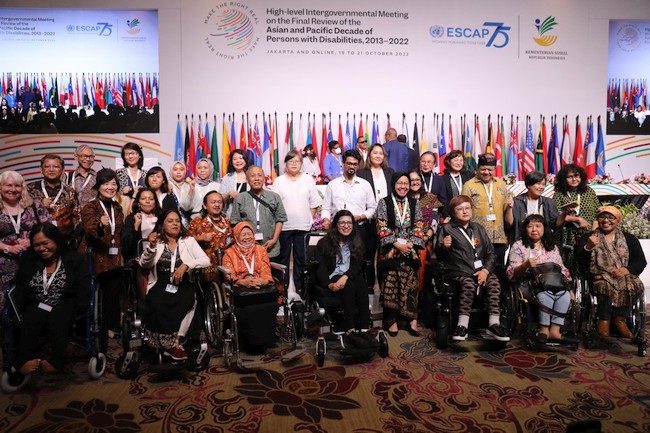Tag: high-level
Breaking News
Enabling hybrid ML workflows on Amazon EKS and Amazon SageMaker with one-click Kubeflow on AWS deployment
Today, many AWS customers are building enterprise-ready machine learning (ML) platforms on Amazon Elastic Kubernetes Service (Amazon EKS) using Kubeflow on AWS (an AWS-specific...
Privacy-Protecting Regulatory Solutions Using Zero-Knowledge Proofs: Full Paper
November 16, 2022 Joseph Burleson, Michele Korver and Dan Boneh Editor’s note: Below is the full text of the paper “Privacy-Protecting Regulatory...
FTX US vs Kraken Review 2022: Top Exchanges for Crypto Trading Compared!
<!-- --> Kraken and FTX are two world-leading, best-in-class exchanges that are utilized and loved by users all over the world,...
Bisq Review 2022: The MOST Decentralized Exchange?
<!-- --> Ah, DeFi… Does it get any better than being in full control of your finances with no boundary-overstepping authoritarian...
Bisq Review 2023: The MOST Decentralized Exchange?
<!-- --> Ah, DeFi… Does it get any better than being in full control of your finances with no boundary-overstepping authoritarian...
KuCoin vs SwissBorg 2023: Top Crypto Exchanges Compared
<!-- --> Finding the perfect crypto exchange can be difficult, we get it. Here at the Coin Bureau, we spend countless...
What Is Aptos? $APT New L1 Blockchain
Aptos, now dubbed as yet another Solana killer, promises a highly secure, upgradeable, and scalable web3 ecosystem. Blockchains are yanked to be the future but it is still experiencing several malfunctions and issues concerning security, usability, and scalability. Aptos is a newly launched powerful blockchain designed to solve the numerous pain points of blockchains on […]
The post What Is Aptos? $APT New L1 Blockchain appeared first on Asia Crypto Today.
Asian and Pacific Countries Adopt Jakarta Declaration 2023-2032

 |
 |
"Today, on the last day of the high-level intragovernmental meeting in the Asia Pacific, we are adopting the Jakarta Declaration 2023-2032, which will be followed up by all members, accelerated and implemented," said the meeting chair and Indonesian Social Affairs Minister, Tri Rismaharini (Risma).
"Through the Jakarta Declaration, we reaffirm our global commitment to a better life for all persons with disabilities," said Risma, emphasizing the commitment of Asia Pacific countries in realizing the Incheon Strategy, initiated ten years ago. "The priority issue is an alignment of the Convention on the Rights of Persons with Disabilities (CRPD) at the level of legislation."
"It is time to increase efforts and take affirmative steps to implement universal design in all public areas, to increase the capacity of people handling persons living with disabilities in all sectors, and conduct national breakthrough campaigns to build awareness about disability," she said. "Harmonization of legislation is the toughest challenge for our own government, as it has central, provincial and regency/city government levels."
Under-Secretary-General of the United Nations, and Executive Secretary of the Economic and Social Commission for Asia and the Pacific (UN ESCAP), Armida Salsiah Alisjahbana said although the implementation of the CRPD was making progress, people with disabilities in the Asia Pacific region face obstacles in education, work, decision making, and many other aspects.
She invites UN ESCAP members to strengthen partnerships with disability organizations, the private sector, United Nations entities and the others to create a comprehensive community approach. Armida hopes that people with disabilities can participate in all policies and programs related to disability actively and significantly, in line with the spirit of 'nothing without us about us'.
HLIGM APDPD was held on a hybrid basis from 19 - 21 October 2022 and was attended by delegates from 53 member states, 9 association member, observer countries, UN agencies, and civil society organizations.
Written by: PR Wire, Editor: PR Wire (c) ANTARA 2022
Source article at: https://en.antaranews.com/news/256377/asia-and-pacific-countries-make-jakarta-declaration-agreement
UN ESCAP member countries also underlined the importance of making strategic investments to push disability-inclusive development through a whole-society approach in collaboration with relevant stakeholders, especially organizations of persons with disabilities and private sector entities, in order to accelerate action to promote and protect the rights of persons living with disabilities.
"I encourage all participants to continue their cooperation with one another and to take all necessary steps to make the recommendations formulated during this meeting in Jakarta. Now and in the next decade, we must come together and work it out," Rismaharini said.
The first point of the Jakarta Declaration is to harmonize national legislations with the Convention on the Rights of Persons with Disabilities, after the convention is ratified, by conducting a comprehensive and regular review of national legislations and appropriate regional regulations.
The second is to promote the meaningful participation of women and men with disabilities of all ages, including by closely consulting and actively involving children and youth with disabilities through their representative organizations, in planning, implementation, and decision-making on policies, programs, and political processes through reasonable accommodation.
The third point involves special attention to the special needs of persons with diverse disabilities and women, children, and elderly with disabilities to increase accessibility of the physical environment, including information and communication technology and systems, public transportation, and essential information and services related to disaster risk and public health emergencies and other public services.
The fourth is to promote the power of the private sector, including its resources, innovation, and technology talent, to push disability-inclusive development by adopting disability-inclusive public procurement policies to promote the adoption of universal design and accessibility measures for infrastructure, technology, and information and communication services that are publicly obtained.
The fifth is to promote a gender-responsive life cycle approach to develop and implement policies and programs related to disability by paying special attention to children, youth, women, and elderly people living with disabilities.
The sixth is to take action, based on information provided by competent national institutions and other recognized sources, to close the disability data gap and strengthen the capacity to track progress in disability-inclusive development at the national and subnational levels by producing comparable and qualified data as chosen by gender, age, and disability across sectors.
Written by: Devi Nindy Sari R, Resinta S, Editor: Rahmad Nasution (c) ANTARA 2022
Source article: https://en.antaranews.com/news/256205/53-asia-pacific-countries-agree-to-jakarta-declaration-on-disability
Copyright 2022 ACN Newswire. All rights reserved. www.acnnewswire.comThe 'High-level Intergovernmental Meeting on the Final Review of the Asian and Pacific Decade of Persons with Disabilities' (HLIGM APDPD) closed on Friday (Oct 21) with 53 Asia-Pacific and 9 associated countries adopting the Jakarta Declaration, marking the start of the fourth 'Asian and Pacific Decade of Persons with Disabilities'.
Asia and Pasific countries make Jakarta Declaration agreement

 |
"Today is the last day and the high-level meeting between governments in the Asia Pacific was closed and we are making the Jakarta Declaration 2023-2032 which will be followed up by members, accelerated and implemented," said Indonesian Social Affairs Minister Tri Rismaharini in Jakarta.
The Jakarta Declaration is expected to be able to reaffirm the commitment of the governments of Asia Pacific countries in realizing the Incheon Strategy, which was initiated ten years ago.
The Jakarta Declaration has six resolutions. One of the priority issues is the alignment of the Convention on the Rights of Persons with Disabilities (CRPD) at the level of legislation.
According to Risma, harmonization of legislation is the toughest challenge for the Indonesian government because it has three levels of government, namely, the central government, provincial government and regency/city government.
Meanwhile, Under-Secretary-General United Nations Economic and Social Commission for Asia and the Pacific (UNESCAP), Armida Salsiah Alisjahbana, said although the implementation of the CRPD making progress, people with disabilities in the Asia Pacific region face obstacles in education, work, decision making, and many other aspects.
Therefore he invites UNESCAP members to strengthen new partnerships with disability organizations, the private sector, United Nations entities and the others to create a comprehensive community approach.
Armida hopes that people with disabilities can participate in all policies and programs related to disability actively and significantly, in line with the spirit of 'nothing without us about us'.
HLIGM APDPD was held on a hybrid basis during 19 - 21 October 2022 and was attended by delegates from 53 member states, 9 association member, observer countries, UN agencies, and civil society organizations.
See the original article: https://en.antaranews.com/news/256377/
Written by: PR Wire, Editor: PR Wire (c) ANTARA 2022
Copyright 2022 ACN Newswire. All rights reserved. www.acnnewswire.comThe High-level Intergovermental Meeting on The Final Review of The Asian and Pacific Decade of Persons with Disabilities (HLIGM APDPD) was closed with the Jakarta Declaration agreement, which marked the start of the fourth decade of Asia and Pacific Decade of Persons with Disabilities.
KuCoin vs Bybit 2023: Which is the TOP Crypto Exchange for KYC-Free Trading?
<!-- --> Welcome cryptonaut, to another article in our versus series where we compare some of the top exchanges to help...
KuCoin vs Bybit 2023: TOP Crypto Exchanges for KYC-Free Trading
<!-- --> Welcome cryptonaut, to another article in our versus series where we compare some of the top exchanges to help...
Binance vs Bybit 2023: Which Exchange is BEST for Crypto Trading?
<!-- --> Welcome cryptonaut, to another article in our versus series where we compare some of the top exchanges to help...




